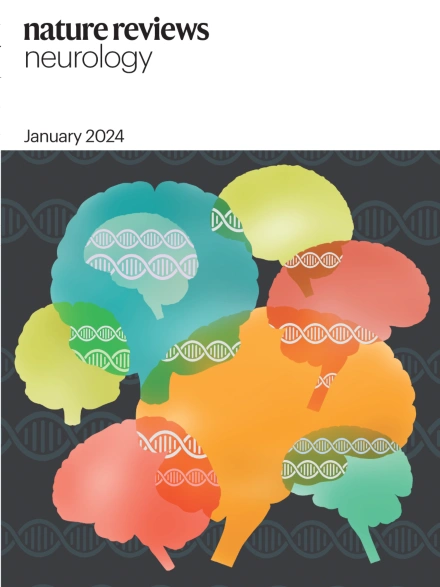Post-COVID dysautonomias: what we know and (mainly) what we don’t know
IF 28.2
1区 医学
Q1 CLINICAL NEUROLOGY
引用次数: 0
Abstract
Following on from the COVID-19 pandemic is another worldwide public health challenge that is referred to variously as long COVID, post-COVID syndrome or post-acute sequelae of SARS-CoV-2 infection (PASC). PASC comes in many forms and affects all body organs. This heterogeneous presentation suggests involvement of the autonomic nervous system (ANS), which has numerous roles in the maintenance of homeostasis and coordination of responses to various stressors. Thus far, studies of ANS dysregulation in people with PASC have been largely observational and descriptive, based on symptom inventories or objective but indirect measures of cardiovascular function, and have paid little attention to the adrenomedullary, hormonal and enteric nervous components of the ANS. Such investigations do not consider the syndromic nature of autonomic dysfunction. This Review provides an update on the literature relating to ANS abnormalities in people with post-COVID syndrome and presents a theoretical perspective on how the ANS might participate in common features of PASC. Autonomic nervous system dysregulation contributes to the chronic, debilitating disorders referred to as ‘long COVID’ or post-acute sequelae of SARS-CoV-2 infection (PASC). Here, Goldstein describes a multisystem, multidisciplinary approach to understanding PASC-induced alterations in feedback-regulated, plastic networks that determine homeostasis and allostasis.


后 COVID 自律神经失调症:我们知道的和(主要)不知道的
继 COVID-19 大流行之后,另一个世界性的公共卫生挑战被称为长期 COVID、后 COVID 综合征或 SARS-CoV-2 感染急性后遗症 (PASC)。PASC 有多种形式,影响身体的所有器官。自律神经系统(ANS)在维持体内平衡和协调对各种压力源的反应方面发挥着多种作用。迄今为止,对 PASC 患者自律神经系统失调的研究大多是观察性和描述性的,以症状清单或客观但间接的心血管功能测量为基础,很少关注自律神经系统的肾上腺髓质、荷尔蒙和肠道神经成分。这些研究没有考虑到自律神经功能紊乱的综合征性质。本综述提供了有关后 COVID 综合征患者自律神经系统异常的最新文献,并从理论角度阐述了自律神经系统可能如何参与 PASC 的共同特征。
本文章由计算机程序翻译,如有差异,请以英文原文为准。
求助全文
约1分钟内获得全文
求助全文
来源期刊

Nature Reviews Neurology
医学-临床神经学
CiteScore
29.90
自引率
0.80%
发文量
138
审稿时长
6-12 weeks
期刊介绍:
Nature Reviews Neurology aims to be the premier source of reviews and commentaries for the scientific and clinical communities we serve. We want to provide an unparalleled service to authors, referees, and readers, and we work hard to maximize the usefulness and impact of each article. The journal publishes Research Highlights, Comments, News & Views, Reviews, Consensus Statements, and Perspectives relevant to researchers and clinicians working in the field of neurology. Our broad scope ensures that the work we publish reaches the widest possible audience. Our articles are authoritative, accessible, and enhanced with clearly understandable figures, tables, and other display items. This page gives more detail about the aims and scope of the journal.
文献相关原料
| 公司名称 | 产品信息 | 采购帮参考价格 |
|---|
 求助内容:
求助内容: 应助结果提醒方式:
应助结果提醒方式:


